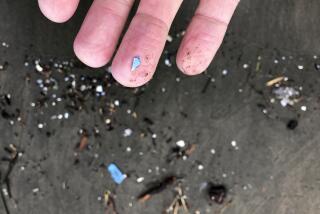In Matters of the Heart, Study Says, Sex Isn’t That Risky
- Share via
Every now and then, some famous male politician or actor suffers a fatal heart attack, and a rumor arises: He died having sex.
The idea that having sex can cause a man’s heart to conk out was resurrected, though unintentionally, by a study published last month in the Journal of the American Medical Assn. Researchers at the Mayo Clinic in Rochester, Minn., set out to study the safety of the impotence drug Viagra.
The Food and Drug Administration has compiled 130 reports of men who died after taking Viagra since it was introduced nearly four years ago. Many of the men suffered heart attacks or cardiac arrest.
The FDA and American Heart Assn. have stated that Viagra is safe when used with the proper cautions, but doubts still linger.
So cardiologist Patricia A. Pellikka and her colleagues assembled 105 men who had erectile dysfunction and some form of heart disease. Each man took a dose of Viagra, then lay on his back and pedaled a special upside-down cycle. The idea was to make the men exert about as much effort as they would during sex. The men were also hooked up to machines that measure heart activity.
The experiment was repeated after giving the men ineffective medications known as placebos. The result: Researchers found no difference in how the subjects’ hearts responded to the bicycling exercise while on Viagra or dummy pills.
However, the Mayo Clinic team reported that a majority of the men experienced a reduction in blood flow to the heart while pedaling the bike, whether on Viagra or placebo. This condition, known as ischemia, can rob the heart tissue of oxygen and potentially lead to a heart attack. Many men who heard about that part of the study--or perhaps read it--were alarmed.
“A lot of people called and asked ‘Does this mean I shouldn’t exercise?’” Pellikka said. “That certainly isn’t the message that we wanted to get across.”
As Pellikka explained, ischemia can occur under the stress of exercise, but usually subsides when you stop exercising. But I’m not surprised her study shook up some guys, and I suspect many callers were wondering specifically about exercising during sex.
But don’t let folklore about men who died in the saddle spoil your sex life. Heart attacks do happen in the heat of passion, but they are rare.
According to a 1996 study published in JAMA, a man’s risk of having the Big One increases during the two hours after sexual activity. For a healthy guy, the risk is about 2.5 times greater than his relative risk during any other given hour of the day.
For a man who already has some form of cardiac problem, the risk is 2.9 times greater.
As the authors of the JAMA study point out, however, that is no big deal. The average man’s odds of having a heart attack during any given hour are extremely low to begin with. So if you increase that risk by 2.5 or 2.9, you still have a very low risk. In the study, which analyzed the hospital records of 1,774 men who had heart attacks, sexual activity was determined to have been a “likely contributor” in less than 1% of the cases.
By another estimate, says cardiologist Richard Stein, a spokesman for the American Heart Assn., the odds that a man’s heart will stop due to the rigors of lovemaking during a given year have been calculated at about one in a million.
That really isn’t too surprising. Even if you think you have a vigorous sex life, you probably aren’t placing much stress on your heart in bed. Scientists have rigged up couples with Holter monitors, which measure electrical activity in the heart, and asked them to engage in sex. It turns out that during the act, the average middle-age guy’s heart gets about as good a workout as it would if he were playing croquet or table tennis. Sexual activity then, says Stein, who is also chief of cardiology at Brooklyn Hospital Center, “is a minimal risk.”
Still, Stein says all men who have had heart attacks or other cardiac problems should have a candid conversation with their doctors about physical activity, including the romantic kind. Stein fears that these men might steer clear of the bedroom due to myths and misinformation. Between one-third and one-half of all men who survive heart attacks or cardiac problems have sex less often than before their illness, or give up sex altogether, he says.
And that’s a shame, since avoiding or limiting sexual activity is medically necessary for fewer than 10% of cardiac patients. So don’t let irrational fears interfere with your sex life. “It’s a fragile thing in a relationship,” Stein said, “and it’s easy to damage.”
*
Massachusetts freelance writer Timothy Gower can be reached by e-mail at tgower@attbi.com. The Healthy Man runs the second Monday of the month.






